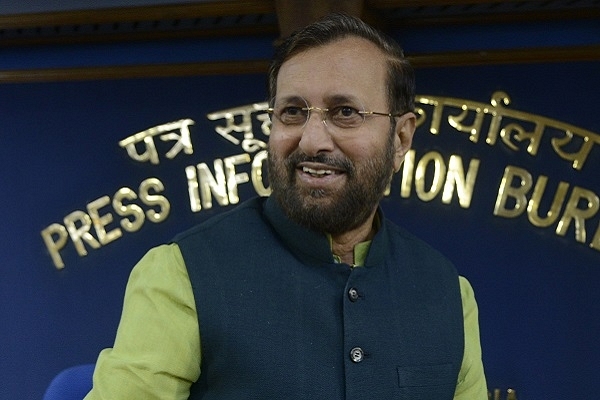
Much delayed National Education Policy To Finally See Light Of Day, Javadekar Says Committee Report Is Ready
Addressing the thirty-first convocation of Goa University, Union Minister for Human Resource Development Prakash Javadekar that K Kasturirangan committee report is ready and the Central Government would announce National Education Policy (NEP) very soon, Press Trust of India has reported.
"Our committee under K Kasturirangan today only said that the report is ready. They are ready to hand over the national educational policy at any day and any time" the minister said.
Post the submission of the report, the HRD ministry will frame a schedule for accepting and implementing the policy. The report is expected to propose radical policy solution and its scope covers elementary to college education in both rural and urban India.
In June 2017, the Union government had constituted a nine-member committee headed by space scientist and former ISRO chairman K Kasturirangan and tasked it with the responsibility of preparing a draft NEP focused on revamping India’s education policy.
Besides Kasturirangan, the panel includes Fields Medal winner and internationally acclaimed mathematician Manjul Bhargava from Princeton University and Vasudha Kamat, former vice chancellor of Mumbai's SNDT University and former IAS officer K J Alphonse Kanamthanam. Alphonse had played a key role in helping Kerala's Kottayam and Ernakulam districts achieve 100 per cent literacy, sources said.
The panel was originally directed to submit its report by December 2017, but was given an extension till March 2018. It was later extended till August 2018 and received another extension for two months.
The repeated extensions led to announcements that the idea of NEP itself was shelved as an agenda item in the current term of the government as it could ‘anger’ other parties.
The government initially had come up with a draft policy, formulated by a panel led by former cabinet secretary TSR Subramanian during the term of former HRD minister Smriti Irani. But it decided to set up another committee headed by Kasturirangan.
India’s first NEP was promulgated in 1968 by the government of then Prime Minister Indira Gandhi, and the second by then Prime Minister Rajiv Gandhi in 1986.